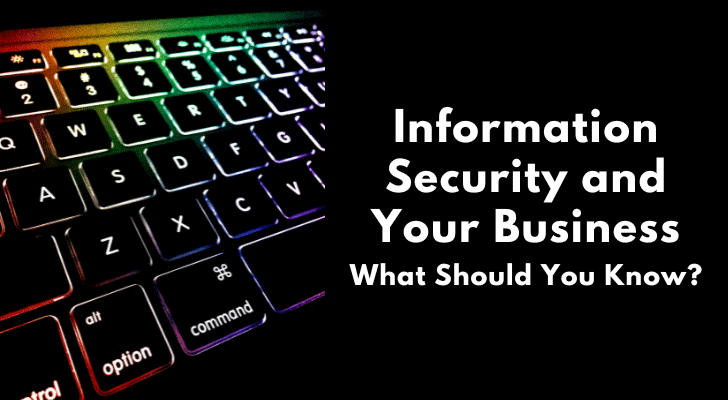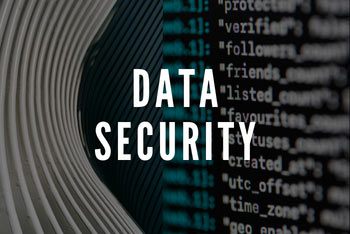There are many different elements to starting a business. As an entrepreneur, you are likely looking outwards while getting your business off the ground – watching the markets, watching out for opportunities and seeking avenues for investment. However, it is just as important to look inwards during your business’ growth, particularly when it comes to issues such as information security.

What is Information Security?
Information security is a broad field, covering the various methods and techniques by which a business or enterprise protects its data and records. There are numerous reasons for which a business should carefully consider its information security policies and infrastructure; not only are there significant risks to the success of a business where confidential internal information is leaked or compromised, but there is also a considerable legal element to the protection of private and user information.
For this latter reason, it is especially important that growing businesses consult with industry experts in order to fully understand the road to compliance, and chart out a feasible path to airtight security measures. But what would such measures look like? Data security and records protection should be approached in two ways: digital, and physical.
Cybersecurity Measures
When we think about business information security, perhaps the first thing that comes to mind is cybersecurity. Information is digitally stored as standard today, as computers and other interconnected devices have been essentially ubiquitous across the developed world for decades now.
Not only are core tranches of data, from employee information to customer and client information, stored digitally, but complex arrays of information (colloquially known as Big Data) are collected, stored and analysed to provide insights on consumer habits and business trajectories. As such, cybersecurity measures are arguably the most important part of your information security infrastructure.
The handling of sensitive information like employee and customer account details and banking information sets a legal precedent for ensuring encryption measures are in place – measures that render any stolen information unreadable. Anti-malware software prevents cybercriminals gaining access to systems or individual terminals, while filters and firewalls for your email client prevent phishing scams from impacting employee decision-making.
Physical Data Security Measures
While cybersecurity is understandably a leading concern for your organisation, it is important that physical security measures are not overlooked. Many businesses will keep physical files of information, whether on employees or with regard to confidential internal matters.
There are certain specific instances where particular measures or approaches are required, such as the handling of medical information. However, for the vast majority of information the average business holds, physical security measures take a more conventional form; information can be locked in locking filing cabinets or behind doors with a unique RFID entry requirement. Training should also be provided to staff to eliminate the chance of fraudulent entry.
Did You Know You Already Have A LOT To Sell?
So What's Your Problem?


